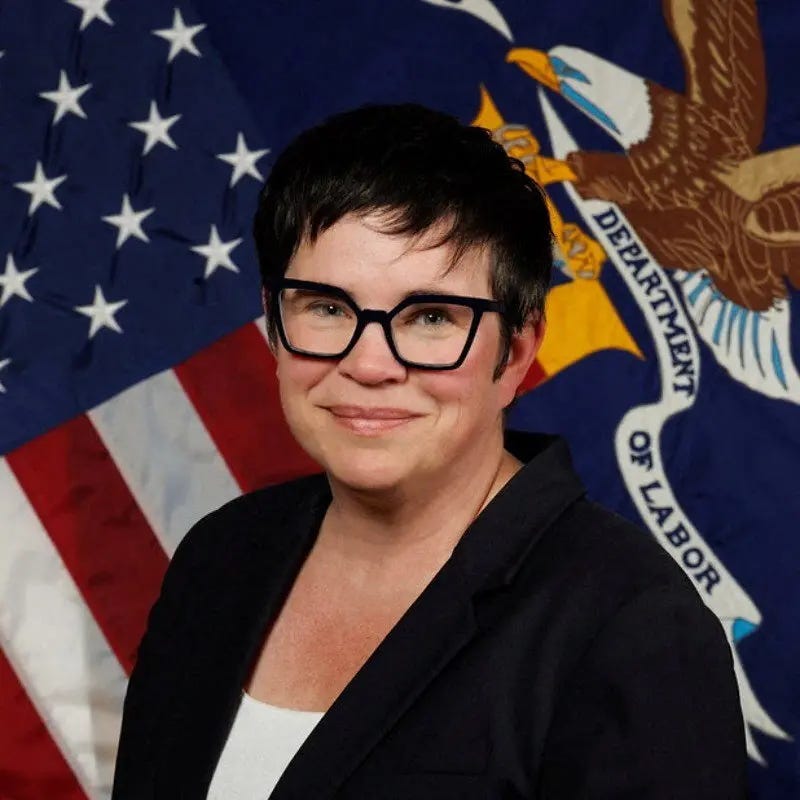It’s Monday, August 4. This is The Front Page, your daily window into the world of The Free Press—and our take on the world at large. Today: Pro-democracy student protesters who fled repression in Hong Kong have a new reason to worry; an Apple update roils political fundraising; letters from our readers; and more.
But first: The sky’s the limit when it comes to paying artificial intelligence superstars.
Right now, a bidding war is raging for superachievers in the world of artificial intelligence that makes last year’s battle to sign Major League Baseball star Juan Soto seem like chump change.
If you think that the $765 million, 15-year contract Soto wound up landing with the New York Mets was astonishing, consider the fact that Meta just agreed to spend $250 million to hire Matt Deitke, an AI researcher who is just 24 years old. Or that Meta also tried to lure away the stars of an AI start-up, including Andrew Tulloch, who was reportedly offered more than $1 billion.
Can anyone possibly be worth that much?
We asked Free Press columnist Tyler Cowen for his take. It might sound crazy, he writes, but those numbers aren’t hard to justify when compared with the gains in revenue and corporate valuation that are at stake for the winners of the AI race. History has shown us before that outrageous prices soon become seen as common. Click below to read Tyler’s fascinating analysis.
But what exactly is Meta trying to achieve? We had lots of questions after Mark Zuckerberg said in a video that the company wants to bring each of us an AI companion that “knows us deeply, understands our goals, and can help us achieve them.” How will this technology work? Will anyone regulate it? What even is “personal superintelligence?”
Some of the smartest people we know in the AI world gave us their answers. Matt Britton thinks we will need to decide for ourselves how to integrate superintelligence “into our lives without losing our humanity.” Eugenia Kuyda says that highly personalized artificial intelligence agents could help solve the loneliness crisis. Click below to read their full takes, as well as those of Aravind Srinivas, Nicholas Carr, and our own Tyler Cowen.
—Rick Brooks

-
President Trump fired Erika McEntarfer, the commissioner of the Bureau of Labor Statistics, after the agency released surprisingly weak hiring data. Trump claimed that the data had been “rigged” and accused McEntarfer of meddling with the numbers “for political purposes.” McEntarfer worked in Democratic and Republican administrations, and was confirmed last year in a bipartisan vote that included support from J.D. Vance and Marco Rubio, who were senators at the time.
-
Ghislaine Maxwell, the convicted fixer for sex trafficker Jeffrey Epstein, was moved to a minimum-security federal prison camp in Texas on Friday. The move to a less restrictive site followed controversial meetings with the Justice Department’s second-highest-ranking official. Maxwell and her lawyers are pushing for a pardon, which Trump has said he is “allowed to give her.”
-
An earthquake shook New York and New Jersey late Saturday night. The seismic event began at 10:18 p.m. and had a magnitude of 3.0. Some people felt a slight tremor. “I AM FINE,” the Empire State Building posted on X.
-
President Trump said Friday that he mobilized two nuclear submarines “just in case” what he called “foolish and inflammatory statements” by former Russian president Dmitry Medvedev “are more than just that.” Trump and Medvedev have been sparring on social media.
-
A new report shows increasing class divides emerging between women in the workplace. According to the study, the percentage of college-educated women aged 25 to 44 working full-time rose by nine points between 2004 and 2024. The percentage of non-college women working full time increased by less than one point. For more on the split between the working class and college-educated elites, read this excellent essay by our River Page.
-
Four people were shot dead at The Owl Bar in Anaconda, Montana, on Friday morning. A manhunt for the shooter in wooded, mountainous terrain focused on U.S. soldier Michael Paul Brown, who lived next door to the bar.
-
Officials discovered four radioactive wasp nests at a facility in South Carolina that produced material for nuclear weapons during the Cold War. The Savannah River Operations Office manager said that the wasp nests “do not pose a health risk to SRS workers, the community, or the environment.”
-
American sprinter Sha’Carri Richardson was arrested at Seattle-Tacoma International Airport for allegedly assaulting her boyfriend, who was shoved into a wall. Richardson, the reigning 100-meter world champion, didn’t compete in the Tokyo Olympics after testing positive for marijuana.
-
For the second time in three days, a fan threw a sex toy onto the court at a WNBA game. Friday’s incident occurred during the third quarter of the Golden State Valkyries’ win over the Chicago Sky. The WNBA said Saturday that police arrested the person who threw a sex toy Tuesday during Golden State’s win over the Atlanta Dream. Future ffenders will be banned from games for at least a year.
ICYMI: Free Press columnist Tyler Cowen sat down with Josh Szeps for a livestream of Szeps’ podcast Uncomfortable Conversations. Follow Uncomfortable Conversations to watch the full episode, presented in collaboration with The Free Press.
Click this link for the original source of this article.
Author: The Free Press
This content is courtesy of, and owned and copyrighted by, https://bariweiss.substack.com feed and its author. This content is made available by use of the public RSS feed offered by the host site and is used for educational purposes only. If you are the author or represent the host site and would like this content removed now and in the future, please contact USSANews.com using the email address in the Contact page found in the website menu.











